Politics
Afghanistan airdrops commandos to rescue quake survivors
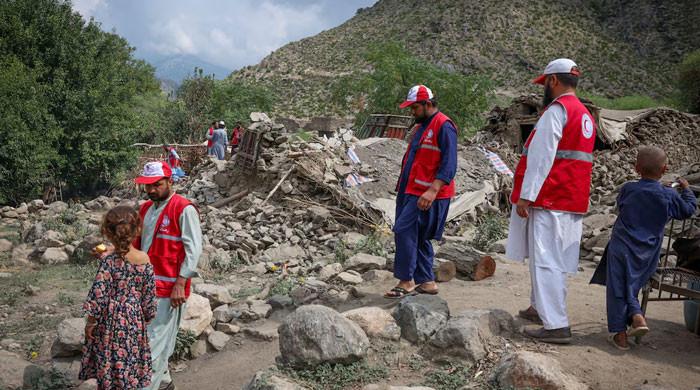
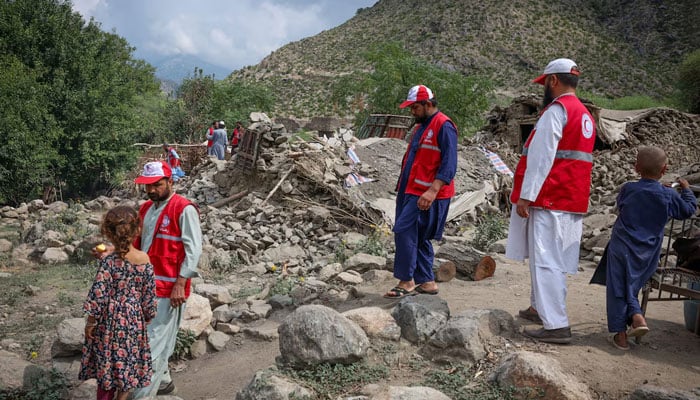
- Toll stands at 1,457 deaths, 3,394 injuries.
- WFP warns food aid will run out in four weeks.
- Entire households wiped out.
Afghanistan airdropped commandos on Wednesday to pull survivors from the rubble in areas ravaged by earthquakes that have killed more than 1,400 this week, as a UN agency warned that food aid for victims would run out soon without urgent funding.
Dozens of commando forces were being airdropped at sites where helicopters cannot land, to help carry the injured to safer ground, in what aid groups said was a race against time to rescue those still stuck under rubble.
Time was also running out for those who survived the two devastating quakes in the remote eastern region of the impoverished country, the UN World Food Programme (WFP) warned on Wednesday.
John Aylieff, the head of WFP in Afghanistan, told Reuters that the agency only has enough funding and stocks for the next four weeks.
“Four weeks is just not enough even to meet the basic, essential needs of the population struck by the earthquake, let alone put the victims on a path back to rebuilding their lives,” Aylieff said.
WFP funding for Afghanistan this year is just under $300 million, according to UN financial data, down from $1.7 billion in 2022, the first full year the country was ruled by the Taliban.
Resources for rescue and relief work are tight in the nation of 42 million people hit by war, poverty and shrinking aid. It has received limited global help after the disaster.
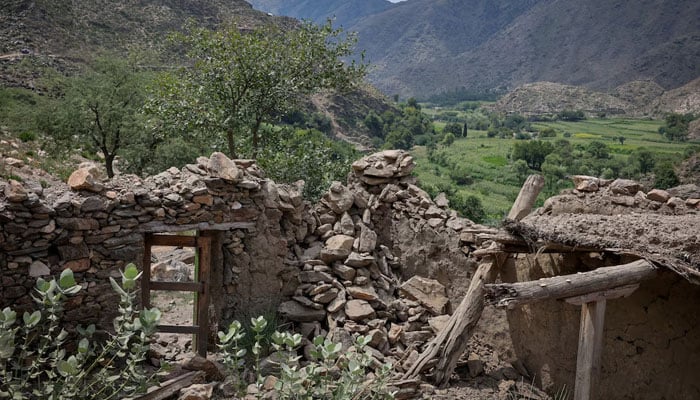
The first earthquake of magnitude-6, one of Afghanistan’s deadliest in recent years, unleashed widespread damage and destruction when it struck the provinces of Kunar and Nangarhar around midnight on Sunday at a shallow depth of 10km.
A second quake of magnitude-5.5 on Tuesday evening caused panic and interrupted rescue efforts as it sent rocks sliding down mountains and cut off roads to villages in remote areas.
The toll stands at 1,457 deaths, 3,394 injuries and more than 6,700 destroyed homes, the Taliban administration said. The UN has said the toll could rise, with people still trapped under rubble.
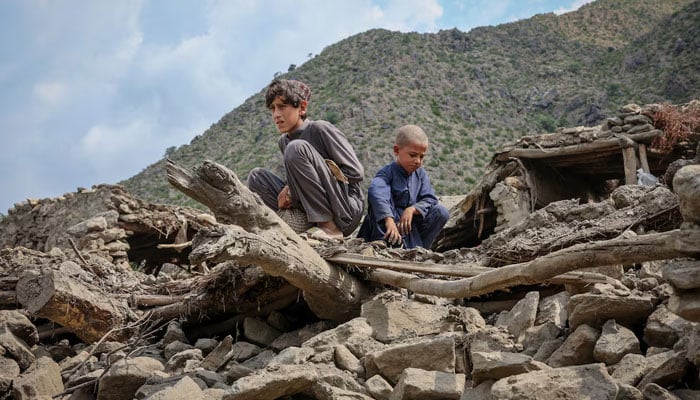
Authorities have set up a camp to coordinate supplies and emergency aid, while two centres were overseeing transfer of the injured, burial of the dead and the rescue of survivors, Ehsanullah Ehsan, the head of disaster management in Kunar, said in a text message.
“What we really need is air support, helicopters. Tragically WFP had a helicopter … until a few months ago when funding cuts put an end to that,” Aylieff said.
Afghanistan has been badly hit by US President Donald Trump’s funding cuts to foreign aid, while donor frustration over the Taliban’s restrictive policies towards women and curbs on aid workers have worsened its isolation.
Entire households wiped out
In some villages in Kunar province, entire households were wiped out. Survivors sifted through rubble looking for families, carried bodies on woven stretchers and dug graves with pickaxes.
In Lulam village, one of the hardest-hit, Darbar, a 63-year-old woman who goes by one name, said she and her family had been waiting for aid for three days since the earthquake destroyed their house.
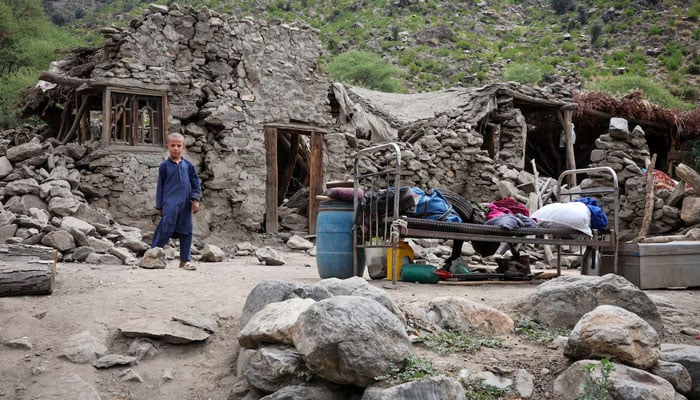
“No one even hears our voices,” she said, perched on a traditional wood-and-rope bed, adding that she had been injured on the chest. “Now we are just sitting with hope in God. We have no house, nothing to eat.”
On the nearby mountain road, trucks carrying sacks of flour or men with shovels could be seen on their way to villages even worse hit.
Ruhila Mateen from Aseel, a humanitarian tech platform that has teams on the ground, said conditions were worsening by the hour for survivors, with women and children especially vulnerable.
Flimsy or poorly-built homes made of dry masonry, stone and timber gave little protection from the quakes, in ground left unstable by days of heavy rain, said the UN Office for the Coordination of Humanitarian Affairs (OCHA).
The agency, which is pulling together the global disaster effort, called for emergency shelter, food assistance and sanitation facilities, along with drinking water, critical medical supplies and other items.
An official of international group Doctors without Borders (MSF), which distributed trauma kits at two hospitals in the affected areas, also called for more humanitarian assistance.
Afghanistan is prone to deadly earthquakes, particularly in the Hindu Kush mountain range, where the Indian and Eurasian tectonic plates meet.
Politics
Zelensky reveals US-Ukraine plan to end Russian war, key questions remain
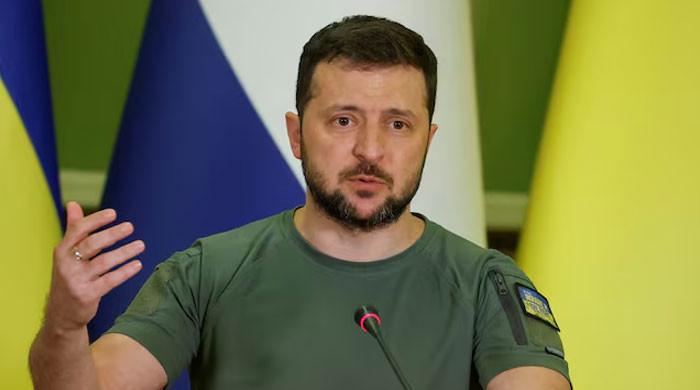
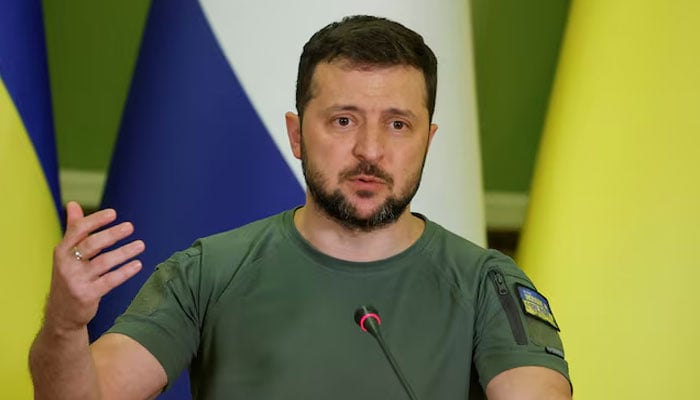
- Moscow reviewing 20-point plan but may not accept territorial terms.
- Plan allows partial troop withdrawals, establishment of demilitarised zones.
- Zelensky admits there are points in plan he does not fully agree with.
KYIV: Ukraine won some concessions in the latest version of a US-led draft plan to end the Russian invasion, revealed by President Volodymyr Zelensky, though key questions remain over territory and whether Moscow could accept the new terms.
The 20-point plan, agreed on by US and Ukrainian negotiators, was being reviewed by Moscow, but the Kremlin is unlikely to abandon its hardline territorial demands for full Ukrainian withdrawal from the east.
Zelensky conceded there are some points in the document that he does not like, but Kyiv has succeeded in removing immediate requirements for Ukraine to withdraw from the Donetsk region or that land seized by Moscow’s army would be recognised as Russian.
Nevertheless, the Ukrainian leader still indicated the proposal would pave the way for Kyiv to pull some troops back, including from the 20 percent of the Donetsk region that it controls, where demilitarised zones would be established.
It also got rid of demands that Kyiv must legally renounce its bid for Nato membership.
Zelensky presented the plan during a two-hour briefing with journalists, reading from a highlighted and annotated version.
“In the Donetsk, Lugansk, Zaporizhzhia, and Kherson regions, the line of troop deployment as of the date of this agreement is de facto recognised as the line of contact,” Zelensky said of the latest version.
“A working group will convene to determine the redeployment of forces necessary to end the conflict, as well as to define the parameters of potential future special economic zones,” he added.
This appears to suggest the plan opens the way for, but delays, options that Ukraine was previously reluctant to consider — a withdrawal of troops and the creation of demilitarised zones.
“We are in a situation where the Russians want us to withdraw from the Donetsk region, while the Americans are trying to find a way,” Zelensky said.
“They are looking for a demilitarised zone or a free economic zone, meaning a format that could satisfy both sides,” he continued.
Nato, land, nuclear plant
US President Trump is trying to broker an to end the four-year war, triggered by Russia’s 2022 invasion.
Tens of thousands have been killed, eastern Ukraine decimated, and millions forced to flee their homes.
Russian troops are advancing on the front and hammering cities and Ukraine’s energy grid with nightly missile and drone barrages. The defence ministry on Wednesday said it had captured another Ukrainian settlement in the southern Zaporizhzhia region.
Moscow in 2022 claimed to have annexed four Ukrainian regions — Donetsk, Kherson, Lugansk, and Zaporizhzhia — in addition to the Crimean peninsula, which it seized in 2014.
In Moscow, President Vladimir Putin has shown no willingness to compromise, doubling down on his hardline demands for a sweeping Ukrainian withdrawal and a string of political concessions that Kyiv and its European backers have previously cast as capitulation.
Any plan that involves Ukraine pulling back its troops would need to pass a referendum in Ukraine, Zelensky said.
“A free economic zone. If we are discussing this, then we need to go to a referendum,” Zelensky said, referring to plans to designate areas Ukraine pulls out from as a demilitarised free trade zone.
On Nato, Zelensky said: “It is the choice of Nato members whether to have Ukraine or not. Our choice has been made. We moved away from the proposed changes to the Constitution of Ukraine that would have prohibited Ukraine from joining Nato.”
Nevertheless, the prospects of Ukraine being admitted to the bloc appear slim-to-none, as it has been ruled out by Washington.
Moscow has repeatedly said Nato membership for Ukraine is unacceptable, presenting it as one of the reasons it invaded in the first place.
The plan sees joint US-Ukrainian-Russian management of the Zaporizhzhia nuclear power plant, occupied by Russian troops. Zelensky said he does not want any Russian oversight of the facility.
He also said Ukraine would hold presidential elections only after an agreement is signed — something both Putin and Trump have been pushing for.
Kremlin spokesman Dmitry Peskov told reporters Moscow was “formulating its position” and declined to comment on the specifics of the latest plan.
Russian officials have repeatedly criticised European and Ukrainian efforts to amend an original US plan that enshrined many of its demands.
Direct talks between Russian and Ukrainian negotiators earlier this year in Istanbul failed to break the deadlock and despite the flurry of diplomacy, the positions of the two countries appear to still be far apart.
Politics
Bangladesh political heavyweight Tarique Rahman to end exile
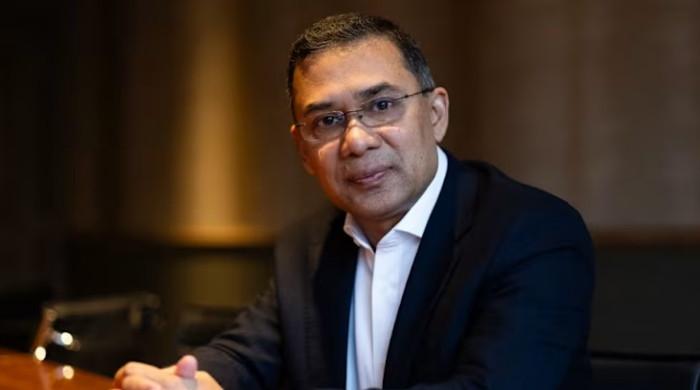
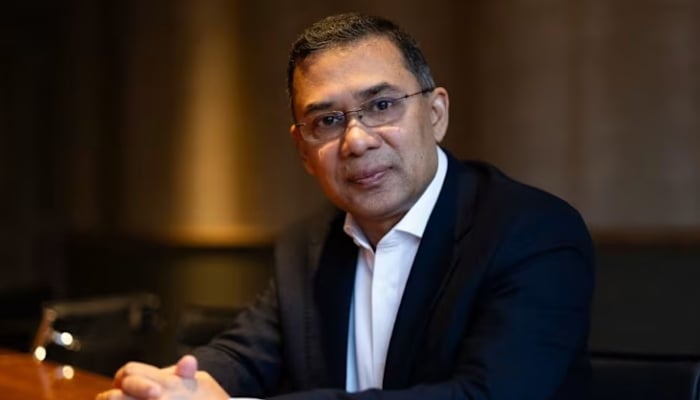
- Rahman serves as acting chairman of BNP.
- Political scion expected to take reins from Khaleda Zia.
- Rahman acquitted of most serious charge.
The heir to Bangladesh’s longtime ruling family and a leader of its most powerful political party, Tarique Rahman is set to return home after 17 years in exile and ahead of key elections.
Rahman, 60, an aspiring prime minister who has lived in London since he fled Bangladesh in 2008 over what he called a politically motivated persecution, is due to arrive in Dhaka on Thursday.
Acting chairman of the Bangladesh Nationalist Party (BNP), he is expected to take the reins from his ailing mother, 80-year-old former prime minister Khaleda Zia.
Despite years of ill health and imprisonment, Zia vowed in November to campaign in the February 12, 2026 elections.
But she was hospitalised soon after that pledge, and she has been in intensive care ever since.
The elections will be the first since a mass uprising last year ended the 15-year hardline rule of Sheikh Hasina, who was at odds with the BNP.
Since Hasina’s fall from power, Rahman has been acquitted of the most serious charge against him: a life sentence handed down in absentia for a 2004 grenade attack on a Hasina rally. He had denied the charges.
BNP secretary general Mirza Fakhrul Islam Alamgir has promised Rahman will “arrive among us on the soil of Dhaka” on December 25, which he said will be a “fantastic day.”
Rahman, often pictured beside his mother on BNP banners, has long been groomed for leadership.
In June, he met in London with Muhammad Yunus, the 85-year-old Nobel Peace Prize winner leading the interim government until the February elections.
Violent politics
Rahman, known in Bangladesh as Tarique Zia, carries a political name that has defined his life.
Born in 1967 when the country was still East Pakistan, he was briefly detained as a child during the 1971 war. The BNP hails him as “one of the youngest prisoners of war”.
His father, Ziaur Rahman, was an army commander.
Ziaur Rahman gained influence months after a 1975 coup in which Sheikh Hasina’s father — founding leader Sheikh Mujibur Rahman was murdered.
That fuelled lifelong tensions between the Zia and Hasina families, dubbed the “Battle of the Begums” — “begum” meaning a powerful woman.
Ziaur Rahman was assassinated when his son was 15.
The younger Rahman grew up in his mother’s political orbit, as Zia went on to become the country’s first female prime minister, alternating her terms in power with Hasina.
Rahman briefly studied international relations at Dhaka University before entering politics at 23, joining the BNP in its fight against military ruler Hussain Muhammad Ershad, according to his party.
‘Unnerves many’
Still, Rahmans’ career has been dogged by allegations of nepotism and mismanagement.
A 2006 US embassy cable described him as the BNP’s “heir apparent” who “inspires few but unnerves many”.
Other cables labelled him a “symbol of kleptocratic government and violent politics” and accused him of being “phenomenally corrupt” — claims he rejected as politically motivated.
Rahman was arrested on corruption charges in 2007 and claimed he was tortured in custody.
Reports suggested his release was conditional on leaving politics. Freed later that year, he flew to London in 2008 for medical treatment and never returned.
After Hasina swept to power in 2008, her government jailed tens of thousands of BNP members.
In 2018, Rahman was again sentenced in absentia to life imprisonment for allegedly orchestrating the 2004 attack on Hasina’s rally — a case the BNP called a bid to eliminate the Zia dynasty from politics.
In Britain, he kept a low profile alongside his wife, a cardiologist, and their daughter.
Since Hasina’s ouster, Rahman emerged as an outspoken figure on social media and a rallying point for BNP supporters.
Politics
Libyan army’s chief dies in plane crash near Ankara
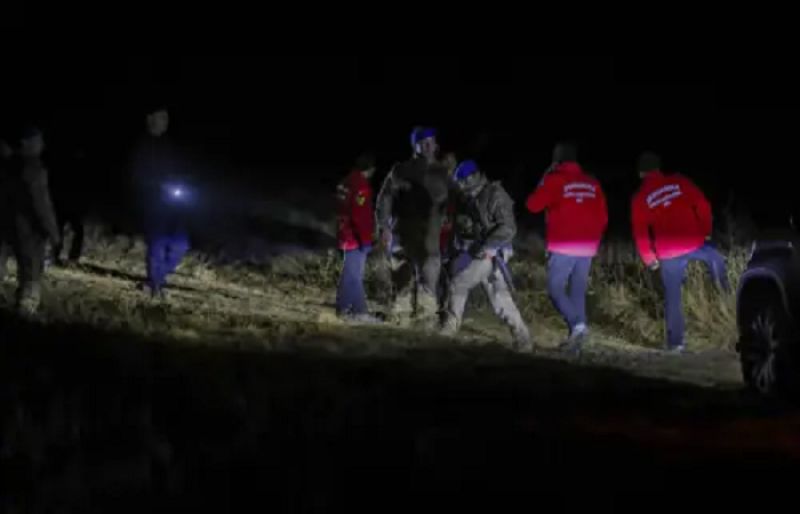

The Libyan army’s chief of staff, Mohammed Ali Ahmed Al-Haddad, died in a plane crash after leaving Turkiye capital Ankara, the prime minister of Libya’s internationally recognised government said, adding that four others were on the jet as well.
“This followed a tragic and painful incident while they were returning from an official trip from the Turkish city of Ankara.
This grave loss is a great loss for the nation, for the military institution, and for all the people,” Libyan Prime Minister Abdulhamid Dbeibah said in a statement.
He said the commander of Libya’s ground forces, the director of its military manufacturing authority, an adviser to the chief of staff, and a photographer from the chief of staff’s office were also on the aircraft.
Platform X that the plane had taken off from Ankara’s Esenboga Airport at 1710 GMT en route to Tripoli, and that radio contact was lost at 1752 GMT.
He said authorities found the plane’s wreckage near the Kesikkavak village in Ankara’s Haymana district.
He added that the Dassault Falcon 50-type jet had made a request for an emergency landing while over Haymana, but that no contact was established.
The cause of the crash was not immediately clear.
Turkiye’s defence ministry had announced Haddad’s visit earlier, saying he had met with Turkish Defence Minister Yasar Guler and Turkish counterpart Selcuk Bayraktaroglu, along with other Turkish military commanders.
The crash occurred a day after Turkiye’s parliament passed a decision to extend the mandate of Turkish soldiers’ deployment in Libya by two more years.
Nato member Turkiye has militarily and politically supported Libya’s Tripoli-based, internationally recognised government.
In 2020, it sent military personnel there to train and support its government and later reached a maritime demarcation accord, which has been disputed by Egypt and Greece.
In 2022, Ankara and Tripoli also signed a preliminary accord on energy exploration, which Egypt and Greece also oppose.
However, Turkiye has recently switched course under its “One Libya” policy, ramping up contacts with Libya’s eastern faction as well.
-

 Fashion7 days ago
Fashion7 days agoIndonesia’s thrift surge fuels waste and textile industry woes
-

 Business7 days ago
Business7 days agoBP names new boss as current CEO leaves after less than two years
-

 Tech7 days ago
Tech7 days agoT-Mobile Business Internet and Phone Deals
-

 Sports7 days ago
Sports7 days agoPKF summons meeting after Pakistani player represents India in kabaddi tournament
-
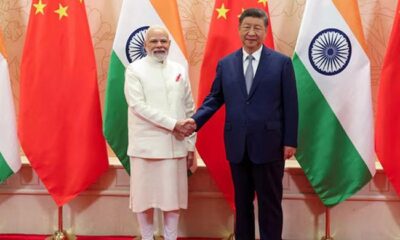
 Entertainment7 days ago
Entertainment7 days agoIndia streamlines visa rules in boost for Chinese professionals
-

 Sports7 days ago
Sports7 days agoUWCL grades for all 18 teams: Leuven get A+; Barça an A-, PSG fail
-
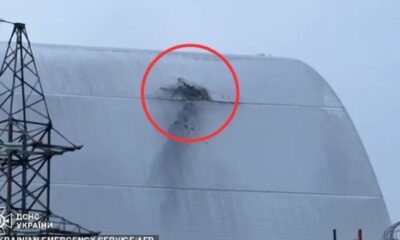
 Entertainment7 days ago
Entertainment7 days agoRadiation fears rise after cracks found in $2 billion Chernobyl shield
-
Sports4 days ago
Alabama turned Oklahoma’s College Football Playoff dream into a nightmare






